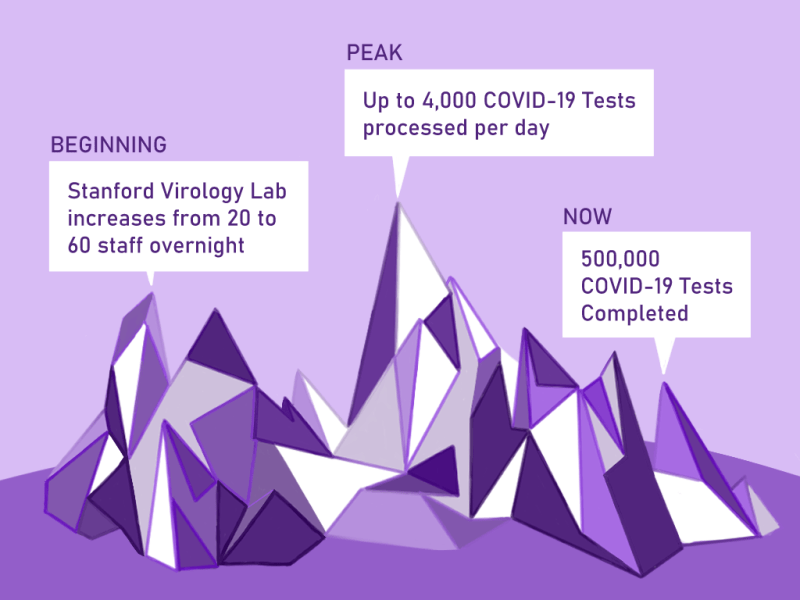Stanford Medicine has conducted over 500,000 COVID-19 tests, with its first being administered on March 4 last year.
“This is a spectacular achievement,” Anatomic Pathology and Clinical Laboratories administrative director Jennifer Fralick wrote in an email to The Daily. “In less than a year, we developed the test, implemented it and processed over 500,000 tests. The speed of the ramp up is unprecedented for a hospital lab.”
The Stanford Clinical Virology Lab was one of the first in the country to develop and implement the SARS-CoV-2 test. As such, it has been able to test not only its patients, but those within the northern Bay Area as well, including K-12 teachers.
Over the past year, the lab has worked to keep up with testing requirements. Fralick wrote that the lab grew from 20 staff members to over 60 practically overnight.
In addition to upgrading and purchasing new instruments to meet volume demands, the lab established a new emergency infectious disease lab to process up to 6,000 tests a day, Fralick wrote.
“As the pandemic has evolved, we’ve been able to stay at the cutting edge as far as testing goes,” pathology associate professor and lab director Benjamin Pinsky told Stanford Medicine News. For example, it is the first and only lab in the U.S. that offers a “minus strand” test, which determines whether the virus is actively replicating in a patient’s body — the lab “assesses patient specimens to distinguish people who may have persistent active infections from those with vestigial viral components in their blood.”
This testing has also allowed for better management of the pandemic.
“Early diagnosis is one of the mainstays in controlling the pandemic,” Kenji Obadia, manager of infectious disease and esoteric testing at the Virology Lab, wrote. “This allows for the isolation of infectious individuals, thereby limiting the spread of the virus. Moreover, doctors rely on the lab results to properly manage the patient.”
With this milestone, the Stanford Clinical Virology Lab is looking to target future forms of COVID-19. It has already expanded its test options to include testing for new COVID-19 variants, offering variant screening and whole-genome sequencing. Fralick wrote that with expanded testing “we will be able to better understand the variant development and spread as well correlate them with the next COVID surge.”
Obadia wrote that as variants increase, testing takes on increased importance “since some mutations may lead to severe disease, increase transmission and make the vaccine less effective.”
Those at the Virology lab feel that it is their team camaraderie that keeps them moving forward.
“This is a significant milestone, and it shows the dedication and resilience of our staff,” Obadia wrote. “However, it has not been a comfortable ride. As a team, we had to depend on each other continuously to get the work done.”
